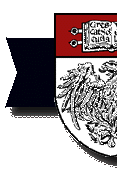 |
Lincoln's
modern job
Some 130 years
after his death, Abraham Lincoln has a new career as a leadership
trainer, thanks to Antigoni Ladd, AB'65. With her husband, Everett
Ladd, she founded the Tigrett Corporation 14 years ago to teach
leadership skills to business executives. Designed to demonstrate
the arts of persuasion and compromise within the context of history,
the program presents executives with a contemporary problem, shows
how a historical figure resolved a similar one, and then lets the
executives apply those insights.
In April, Ladd
directed a "Lessons from Lincoln" seminar in Gettysburg, PA, for
about 15 executives. After presenting the problem-working with difficult
people-she explained how Lincoln would focus on his goal. As long
as his "employees" performed their duties, he ignored their personality
quirks and even their disparaging remarks about himself. The day
ended with a battleground tour and an interview with "Lincoln,"
played by historian James Getty, about his leadership decisions.
Ladd got the
idea of using historical figures to teach leadership from John Clemens,
a Hartwick College professor who in the late '80s used literature-from
the Iliad to Shakespeare-to provide such training. Ladd went a step
further, first writing case studies using historical figures, then
adding on-site locations to give a retreat-like feeling and help
executives remember the lesson by tying it to a specific locale.
From Lincoln,
the Ladds have expanded their offerings to include seminars on how
three Civil War Union generals-John Buford, George S. Greene, and
Joshua Lawrence Chamberlin-worked with limited resources. Tigrett
also offers a London-based course on Winston Churchill, including
a visit to the late prime minister's WWII war rooms to learn the
language of leadership. Another trip, to Billings, Montana, teaches
how to build alliances from the legacy of Sitting Bull.
Ladd estimates
that 1,000 individuals from 100 different companies in businesses
as diverse as banking and telecommunications have been trained using
the programs. "The analogy of Lincoln and the Civil War became an
eye-opening view of my organization," noted one executive on a postseminar
evaluation. "The program was a unique way to examine issues in a
non-threatening environment that could then be readily related to
the job."-Q.J.
|



